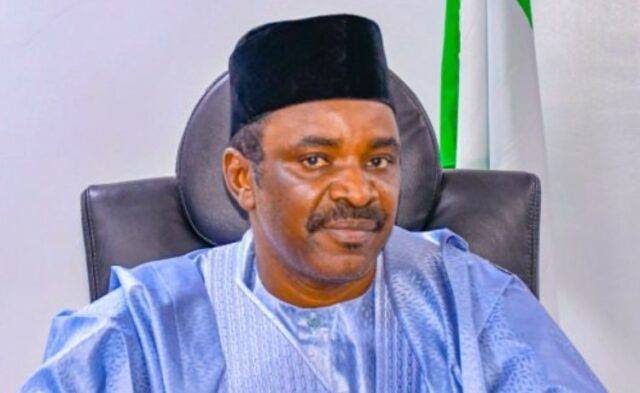The Minister of Transportation, Senator Said Ahmed Alkali, has declared that the Federal Government is overhauling Nigeria’s transport infrastructure and governance systems to meet international standards and achieve global competitiveness.
Alkali made this known on Monday at the 7th National Conference of the Chartered Institute of Transport Administration of Nigeria in Abuja, stating that ongoing reforms and investments across all transport modes align with President Bola Ahmed Tinubu’s Renewed Hope Agenda.
The three-day conference, themed “Repositioning Nigeria’s Transport Infrastructure and Governance Models for Global Competitiveness,” brought together government officials, industry experts, and transport professionals from across the country.
The minister hailed President Tinubu for what he described as visionary leadership and steadfast support for the transport sector.
“Under the President’s guidance, the Federal Executive Council has approved the National Land Transport Policy—a milestone framework that harmonises standards, improves coordination, and fosters private-sector participation,” Alkali stated.
He noted that the policy, approved on July 31, 2025, marks a major achievement that had eluded successive administrations for decades.
Highlighting progress across transport subsectors, Alkali disclosed that the Lagos-Kano Standard Gauge Railway has achieved significant milestones, with the Lagos-Ibadan and Abuja-Kaduna routes fully operational and construction on the Kaduna-Kano segment nearing completion.
He added that work continues on the Kano-Maradi railway to enhance regional connectivity with Niger Republic, while the Port Harcourt-Maiduguri Eastern Narrow Gauge line is reopening trade routes across the eastern corridor.
The minister revealed that a new Ibadan-Minna Standard Gauge line has been approved to enhance national logistics efficiency.
Alkali disclosed that Public-Private Partnership-driven e-ticketing platforms have improved transparency and service delivery on key routes including Lagos-Ibadan, Abuja-Kaduna, and Warri-Itakpe.
He added that a special committee has been constituted to address passenger complaints and ticketing issues, especially along the Abuja-Kaduna corridor, with a new route manager deployed to improve accountability.
The minister revealed that the Nigerian Railway Corporation will soon be unbundled to improve efficiency, while the Federal University of Transportation, Daura, continues to serve as a hub for innovation and research.
He announced the successful test flight of logistics drones developed by engineers at the Nigerian Institute of Transport Technology, Zaria, describing it as a major stride toward adopting smart mobility technologies.
“Nigeria is now exploring Intelligent Transport Systems and blockchain-enabled logistics to enhance transparency, innovation, and sustainability. We must build a governance model that is transparent, data-driven, and performance-oriented,” Alkali stated.
The minister reaffirmed the ministry’s readiness to work with CIoTA and other stakeholders to achieve a modern, efficient, and globally competitive transport system.
“Together, we can build a transport system that moves Nigeria forward with confidence and global competitiveness,” he said.
Declaring the conference open, Kaduna State Governor, Senator Uba Sani, described transportation as the lifeblood of society, calling for bold reforms to meet the challenges of rapid urbanisation and population growth.
“Transportation connects people and places, drives economic growth, and shapes the rhythm of daily life. The arteries of our cities call not for small adjustments but for visionary renewal,” the governor stated.
He disclosed that his administration has launched 85 urban and rural road projects spanning 785 kilometres, with nearly half already completed.
“These new arteries open corridors of commerce, connect farmers to markets, traders to customers, and commuters to opportunity. Bridges, utilities, and public transport facilities are likewise being restored to support growth and attract investment,” Governor Sani said.
The President of CIoTA, Prince (Dr.) Segun Ochuko Obayendo, commended the Federal Government’s progress in the rail sector and urged more innovation and efficiency across other transport modes.
“The real question before us is whether Nigeria is maximising its potential for global competitiveness. Global competitiveness in transport requires governance models that prioritise efficiency over bureaucracy and innovation over tradition,” Obayendo stated.
He listed four key imperatives for the sector’s transformation: infrastructure optimisation, governance innovation, human capacity development, and financial sustainability.
Obayendo urged delegates to ensure post-conference resolutions are translated into actionable policy and project design.
“Transport is not just about moving people and goods, it’s about moving the nation forward. Nigeria is ready to learn, collaborate, and compete on the global stage,” he added.








